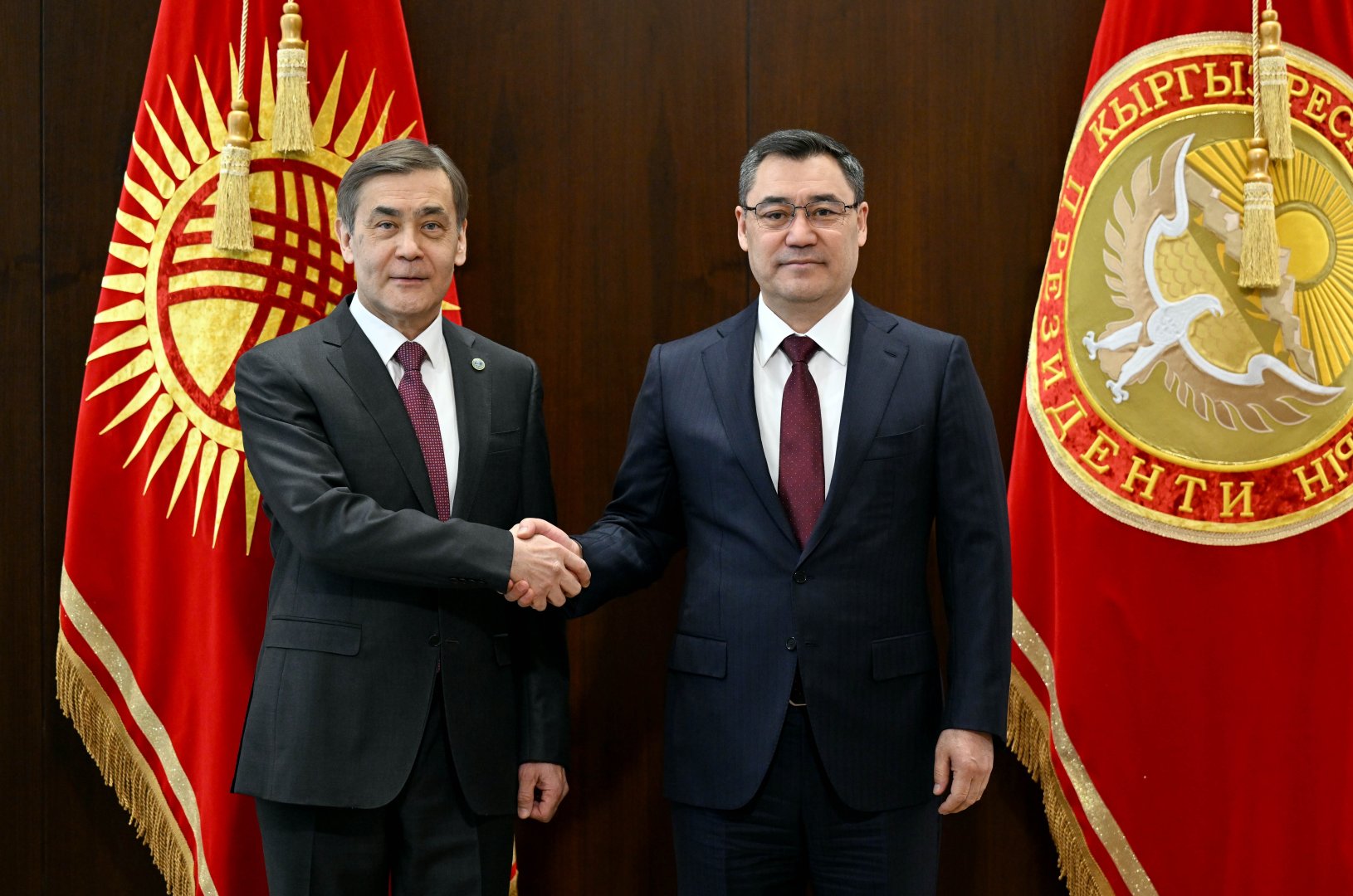BAKU, Azerbaijan, August 30. Kyrgyzstan's membership in the Shanghai Cooperation Organization (SCO) is a key piece of the puzzle in the country’s national strategy. It helps ensure security, boost the economy, and strengthen positions on the international stage.
Way back in 1996, Kyrgyzstan jumped on the bandwagon of the Shanghai Five, the forerunner of the current organization. Since then, the country has been actively involved in shaping the work of the SCO and its institutional processes. In 2001, Kyrgyzstan, together with Kazakhstan, China, Russia, and Tajikistan, signed the Declaration on the Establishment of the SCO. This laid the foundation for closer political and economic cooperation with neighbors and other Eurasian countries.
Kyrgyzstan has rolled out the red carpet for SCO summits on several occasions, including in 2007, 2013, and 2019. After the 25th summit in Tianjin, the SCO chairmanship will pass to Kyrgyzstan in 2026, opening new opportunities for implementing national initiatives and projects at the regional level.
Kyrgyzstan rubs shoulders with four SCO member states: Kazakhstan to the north, China to the east, Uzbekistan to the west, and Tajikistan to the southwest. These borders lay the groundwork for joining forces in security and economic affairs.
In cahoots with China, the country is rolling up its sleeves on significant infrastructure projects, including the building of the China-Kyrgyzstan-Uzbekistan railway. This railway is closely linked to China’s Belt and Road Initiative and demonstrates Kyrgyzstan’s ability to leverage international projects to serve national interests. A border checkpoint, Bedel, is also under construction between the two countries, which is expected to significantly increase trade. Recently, construction began on a road connecting the village of Barskoon on the southern shore of Issyk-Kul to the Bedel checkpoint.
Kyrgyzstan, in collaboration with Kazakhstan and Uzbekistan, is executing synergistic hydropower initiatives, prominently featuring the Kambar-Ata-1 Hydroelectric Power Plant on the Naryn River. These initiatives are pivotal for enhancing regional energy resilience and fostering sustainable growth trajectories.
In March 2025, Kyrgyzstan consummated its territorial
delineations with adjacent SCO constituents via formalized accords.
On March 13, a bilateral accord regarding the Kyrgyz-Tajik
territorial boundary was executed in Bishkek, addressing protracted
delimitation and demarcation complexities that have persisted since
the Soviet epoch. On March 31, a seminal trilateral convergence of
the heads of state from Kyrgyzstan, Tajikistan, and Uzbekistan –
Sadyr Zhaparov, Emomali Rahmon, and Shavkat Mirziyoyev – transpired
in Khujand. The parties executed a bilateral accord concerning the
tripoint delineation of the three sovereign territories, signifying
a pivotal advancement in fostering geopolitical stability and
enhancing inter-state trust among adjacent nations.
These instances illustrate that synergistic collaboration within
the SCO paradigm facilitates the execution of tangible initiatives
that are crucial for economic vitality and regional
equilibrium.
The SCO lays the groundwork for a stable and secure region, paving the way for economic growth to flourish like a well-tended garden. Reduced risks associated with extremist threats and instability increase investor confidence. This is especially important for Kyrgyzstan given its geopolitical position. The country actively participates in strengthening the organization’s institutions, making it one of the key centers of regional integration.
The economic landscape of Kyrgyzstan exhibits resilience and
proficient execution of strategic policies. In the fiscal year
2024, the nation’s gross domestic product experienced a robust
expansion of 9 percent, culminating in an unprecedented peak of
1.52 trillion soms (approximately $17.5 billion). This trend
substantiates the efficacy of the selected methodologies and
fortifies Kyrgyzstan’s standing as a dependable ally for capital
stakeholders and adjacent nations.
The member states of the Shanghai Cooperation Organization
constitute the primary economic collaborators for Kyrgyzstan.
During the initial half of the fiscal year, the predominant segment
of commerce was attributed to China, accounting for 36.7 percent,
followed by Russia with a substantial 21 percent, and Kazakhstan
contributing 10.3 percent to the overall trade matrix.
Digitalization is quickly becoming the name of the game in SCO cooperation. Kyrgyzstan is actively promoting the creation of a Unified SCO Digital Space, seeing it as a way to simplify e-commerce and harmonize regional standards. In particular, in 2026, Kyrgyzstan proposes holding a meeting of SCO ministers responsible for information and communication technology to discuss coordinated steps in this area.
So, the Shanghai Cooperation Organization isn't merely a stage for Kyrgyzstan; it's a means to further its own national interests. Membership in the SCO facilitates the enhancement of national security paradigms, drives economic development initiatives, fosters innovation ecosystems, and cultivates synergistic relationships with regional stakeholders. Kyrgyzstan is strategically positioned as a pivotal nexus of collaboration within the core of Eurasia, thereby facilitating a more stable and equilibrated geopolitical landscape in the region.







